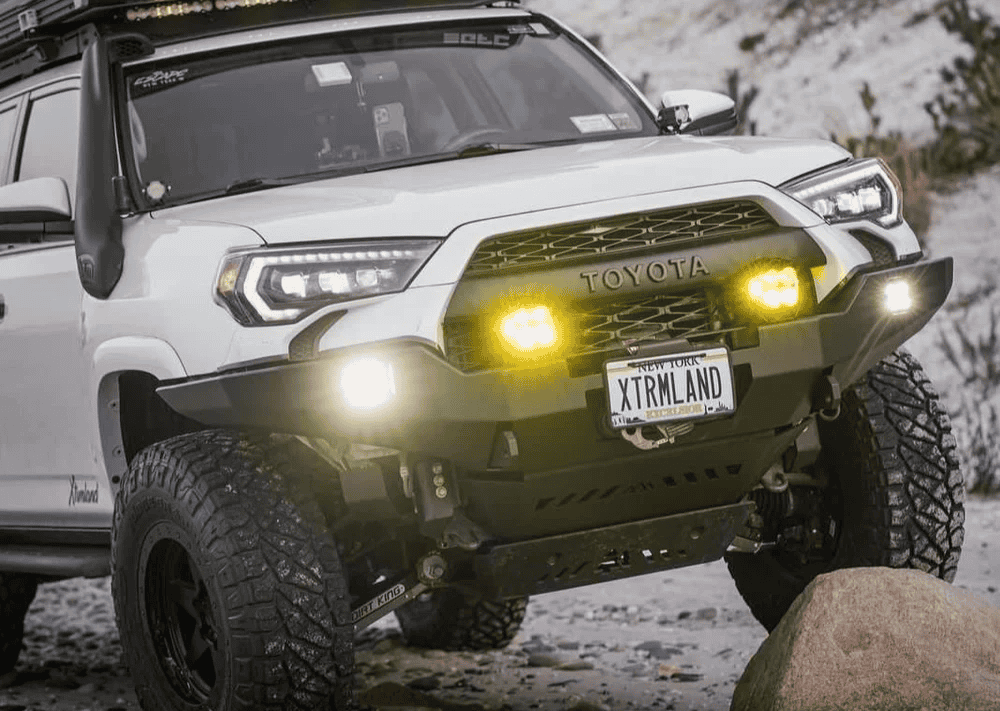Overland Vehicles

Lite truck camper designs prioritize weight control, balance, and a low profile. Whether you choose a light truck bed camper that slides into the bed or a light weight camper shell that clamps to the rails, the goal is the same. Keep mass below the truck’s rated payload, maintain a centered center of gravity, and preserve ground clearance. This is why many builders favor an overland pop up truck camper. Closed on the highway, it cuts drag. Raised at camp, it adds standing room without stacking heavy hard walls high above the bed. The same logic applies to 4x4 truck campers that roam rough trails where lean angles, washboard chatter, and quick transitions are common.
Half ton pickups are popular because they are comfortable daily drivers that still carry a camper. The challenge is matching real world weights to ratings. Truck campers for half ton pickups must account for passengers, fuel, water, food, tools, and recovery gear in addition to the camper itself. The phrase 1 2 ton truck camper appears in many listings, but the numbers that matter are payload and axle ratings. Truck campers for half ton trucks generally work best when the dry camper body stays light and storage uses modular soft goods rather than heavy built ins.
A light weight camper shell often weighs less than a traditional slide in with integrated cabinetry and tanks. Shells pair with portable power stations, soft water containers, and collapsible kitchens to stay nimble. A light truck bed camper with a framed interior can add comfort but must be designed with lightweight structures and smart material choices. People searching lightweight truck campers for sale or lite truck campers for sale often compare these approaches, weighing simplicity against built in features. On long trails, fewer fixed components usually mean fewer rattles and easier maintenance.
Weight creep starts with small choices that add up. Steel drawers, full size tools, and oversized tires influence handling long before you add water and fuel. Keeping a lite truck camper truly light means measuring gear, selecting multi use items, and using textiles instead of timber where possible. Roof loads should be minimal to preserve stability. Even with a pop up, stack weight inside the bed and forward of the axle. On 4x4 truck campers, matching spring rate and shocks to the final curb weight keeps traction predictable on loose surfaces.
Four wheel drive adds reach but does not excuse overloading. On technical trails, a lighter camper eases approach and departure angles and reduces chassis strain. Overland pop up truck camper layouts shine here because they lower height on the move and only rise at camp. Choose compact heaters, slim refrigerators, and lightweight solar modules to keep mass down. Tire selection matters as much as camper weight. A balanced combo lets you air down for traction without sidewall collapse under excessive load. Recovery planning should assume the total rig can be safely winched or jacked in unfavorable terrain.
Modern lightweight systems deliver comfort without bulk. Lithium batteries paired with DC to DC chargers and compact solar panels support fridges and fans in a lite truck camper. Soft water bladders tuck low and forward and can be split to manage weight distribution. Efficient diesel or propane heaters with small tanks reduce the need for heavy insulation and let overland travelers rest comfortably at altitude.
Pop up roofs reduce frontal area on the highway, improving stability in crosswinds. A smooth light weight camper shell with minimal exterior accessories will typically sip less fuel than a tall hard wall design. Wind noise drops, fatigue drops, and range increases. For those browsing lightweight truck campers for sale, fuel savings over long trips can offset the cost of premium lightweight materials.
Campers for half ton pickups need honest math. Start with curb weight, subtract from payload, and hold a buffer for passengers and gear. Short beds and long beds both work, but bed length changes floor plan possibilities. A light truck bed camper may offer a simple sleep platform with slide out kitchen. A full featured pop up can add standing room, a compact galley, and dedicated storage while staying under limits. For 4x4 truck campers, wheelbase and departure angle should be considered alongside interior comfort.
Aluminum frames, honeycomb panels, and marine composites keep weight low and stiffness high. Textile cabinets, molle walls, and soft storage bins handle vibration better than heavy furniture on washboard roads. Hardware should be corrosion resistant and tested for dust and water ingress, especially on an overland pop up truck camper that sees changing climates.
Braking distances grow with every pound. Upgraded pads and matched shocks can help, but safety starts with a realistic build sheet. Keep the center of gravity low, align suspension to the final weight, and verify tire load ratings. Test the rig on local roads before heading deep into the backcountry.
You know what makes a lite truck camper work: disciplined weight, smart storage, and trail friendly height. If you want that approach translated into a purpose built rig, our team can help design and execute a lightweight overland system that fits your truck and travel style. See examples of capable builds on Explore Overland Rigs. If you already have a platform in mind and want a tailored layout, visit Custom Overland Upfit. Curious about process, craftsmanship, and what it is like to work with us, learn more at Why Choose OZK Customs. We craft rigs that stay within half ton limits while delivering the comfort and capability you expect from a modern overland setup.
Ready to spec a true lightweight overland build for your truck. Tell us how you travel and we will design a purpose built camper that respects payload, maximizes space, and performs off road. Submit the form and our team will map a custom plan with transparent pricing and timelines.
ADDRESS:
6159 E Huntsville Rd, Fayetteville, AR 72701
PHONE:
(479) 326-9200
EMAIL:
info@ozkvans.com